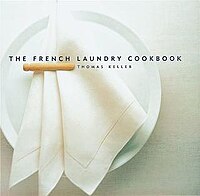| (Photo credit: Wikipedia) |
I would dearly like people to buy it, read it and - ideally - enjoy it. And then I would like them to pester their friends to buy it, read it and enjoy it. By repeating this process, a number of happy people will, in turn, make me happy. It's a virtuous cycle.
There is, however, a large, green-skinned and particularly gnarly troll-thing in the way. Book Marketing.
How do you get people to buy books? It's a problem I don't have a single, elegant solution to. This has surprised me a little, because marketing and communications are very much a part of the day job, so you'd have thought I'd have some clue. And I don't. Any more than publishing companies do. And, believe me, they're pretty much utterly clueless. It used to be nice and easy, but their world has changed. The seasonal catalogues and sales reps thing is no longer the force it once was. I'd shed a tear for 'em, but you know how it is...
Over the years, I have come to realise that books aren't sold with a single 'touch'. Rarely do we see a review of a book and go 'Gosh, I really must have that book right now!' In fact, I can trace the immediate results of reviews reflected directly in my Amazon sales the day they 'break' and I can assure you positive reviews in national media or on popular book review websites result in not one direct book sale. Dittoes for interviews. As for 'book blog tours' I shudder at the very thought of the device, let alone would I consider undertaking one. Like promoting books on writer's sites, it's the blind screaming at the blind.
So all is lost, then? Well, not quite. It's not that reviews are useless per se. They're part of the wider picture. A reader sees a good review, then hears about that same book from a friend, gets caught by another mention of the book and then, ideally, either is persuaded to click on a link or views the book in a physical location. That could be a bookshop or another book-buying opportunity such as an author event - a signing or some such. I have come to believe that three to five 'touches' are needed, ideally one having some form of call to action, before a book sale takes place. I have often said, the last 'touch' should ideally be from me in your ear as you're standing in a bookshop wondering what to do next.
This is not easy to accomplish. Believe me, I've thought about ways you could do it and, reluctantly, drawn a blank. A halfway house would be ensuring that I 'feed' that positive review back into my marketing channels. What you may find depressing is that if you are in any way connected with me, you have just become a 'marketing channel'. So if I haven't stolen your runaway nasal hair or braying laugh to use in one of my characters, I've abused you at the marketing end of the process. One way or another, if you know me, I'm going to use you. And the fact I have not lost one wink of sleep over this tells you what an irredeemable shit this whole book writing thing has made me become.
So, existentialist angst apart, how do you scream 'buy my book!' at someone five times without them punching you?
That's the million dollar question. Clearly, I've been following a 'content strategy' in building awareness of A Decent Bomber. I've done this to a degree with all four books, although Olives got far more attention, including a 'blog of the book'. While this was enormously time consuming, it did have an impact on overall awareness and therefore a smaller but discernible impact on sales. The amount of effort invested vs returns in terms of sales was ridiculous, one aspect of occupying a small market where scale doesn't really count. And McNabb's Law of Clicks applies, depressingly.
So we have reviews out with reviewers (the first one's already in, in fact: "The plot is complex. You must pay attention. You will reap a lot of enjoyment if you do. This is a great story... I thoroughly enjoyed this book. Most readers will jump on the thrill train and get the ride of their lives. In this genre, who could ask for anything more?") and posts about the book and its 'book hooks' (Bombs, the IRA, things Irish, new terror vs old terror. That kind of thing) have been appearing here on the blog. Occasional reminders have gone out to the mailing list and we're building up towards launch. Blog posts get pimped across to Facebook and Google+, Twitter is, as always, a great link-pointing machine.
We are, in short, ticking all the boxes, using a content-led approach to gain your permission to witter at you and wear you down until you resignedly pop off to Amazon and click on that A Decent Bomber pre-order link. Once that pre-order date is past, the book has to generate buzz and recommendation from people - it has, in short, to stand on its own two feet.
What amazes me, to be honest, is how I've found the energy to do all this again. It's Sisyphean, it really is. But found it I have and as a consequence you, you poor thing, are being subjected to new levels of outrageous book pluggery...













